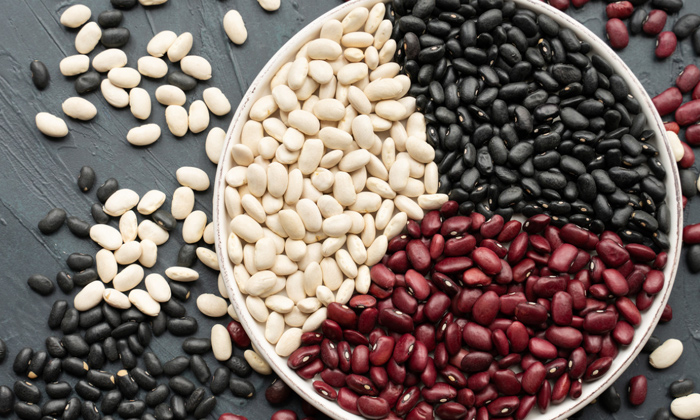
Introduction
Beans are a versatile and nutritious member of the legume family, rich in protein, fiber, vitamins, and minerals. They play a significant role in a balanced diet, offering numerous health benefits.
types of beans
- Black Beans
- Kidney Beans
- Chickpeas (Garbanzo Beans)
- LentilsPinto Beans
- Navy Beans
- Great Northern Beans
- Adzuki Beans
Health Benefits of Various Beans
Here’s an overall summary of the nutritional content commonly found in a typical serving (about 1 cup cooked, approximately 170-200 grams) of beans:
General Nutrition Profile for Beans (per 1 cup cooked)
- Calories: 200-250
- Protein: 14-18g
- Carbohydrates: 35-45g
- Fiber: 12-19g
- Fat: 0.5-1.5g
- Iron: 3-6mg
- Magnesium: 70-120mg
- Folate: 90-350mcg
Nutritional Benefits
Antioxidants: Beans contain various antioxidants that help protect cells from damage.
High Protein Content: Beans are a great source of plant-based protein, essential for muscle growth and repair.
Rich in Fiber: Helps in digestion, regulates blood sugar levels, and maintains healthy cholesterol levels.
Low in Fat: Most beans are low in fat, particularly in unhealthy saturated fats.
Iron-Rich: Beans provide a good amount of iron, crucial for transporting oxygen in the blood.
Magnesium and Folate: Essential for various bodily functions, including muscle and nerve function, and critical during pregnancy for fetal development.
Conclusion
Beans are a versatile and nutritious food that offers numerous health benefits, from supporting heart health and digestion to aiding in weight management and regulating blood sugar levels. Including a variety of beans in your diet can enhance overall well-being and provide essential nutrients for a balanced diet.
